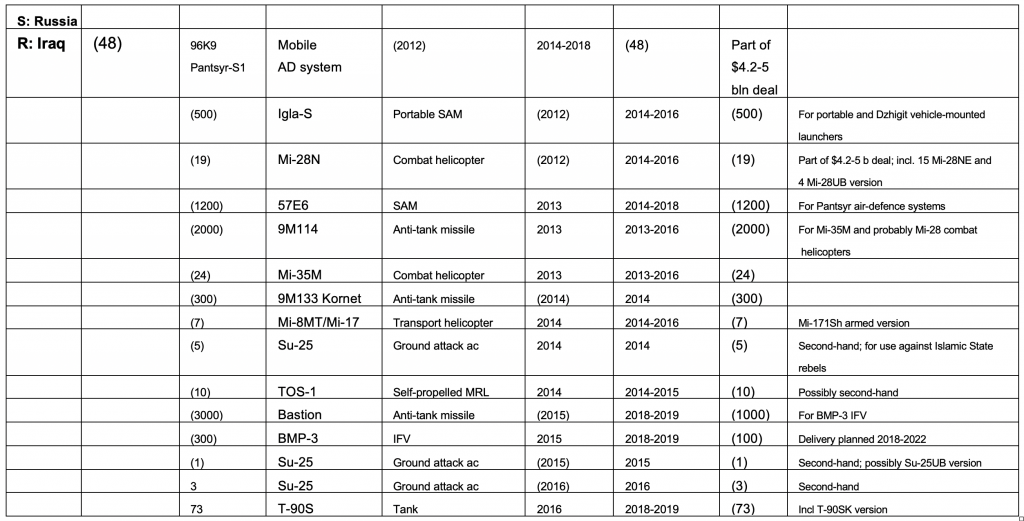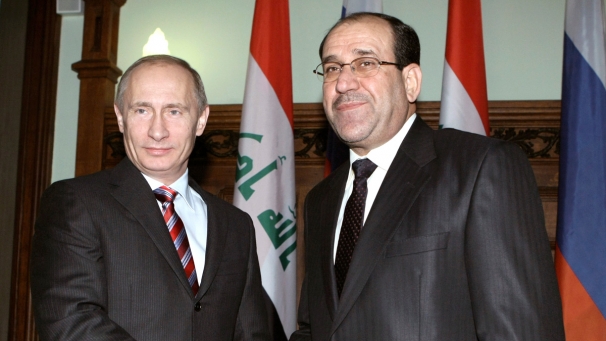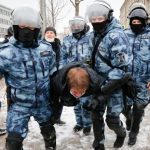The recent events observed in Afghanistan have shown us how fragile the US order can be. After 20 years of fighting, the Taliban is again at the helm, and it seems that this time they might succeed. Looking a bit to the West, Iraq has been a bit quiet these days, but one thing is certain. The eyes of the world will soon shift towards the Tigris and Euphrates.
The slow degradation of US influence in the region
At first, it seemed that everything will go well in Iraq, as it was with Afghanistan. There were elections, new governments, new deals and the nation building idea. In time, this idea became clearly unrealistic and in fact only in few cases it was completed with a success. In the long run, one can conclude, that trying to implement a western style of living into two eastern countries was a fatal mistake.
Although Afghanistan is lost, Iraq is still holding up, but for how long? Many years of occupation by US troops didn’t win the Iraqi hearts. The well remembered scenes of the Saddam regime collapse and the enthusiasm have faded away. Billions of dollars that were pumped into rebuilding the country and shaping the Iraq nation to a Western taste seem to be lost.
Few months from now, all the US combat troops will be withdrawn from Iraq. Only advisors and instructors are supposed to stay, but one can expect that they won’t be there for long. If one power steps back, another global player waits to step in, and it will provide its own advisors and instructors. The first suspect here is as always Russia, which has sent their advisors previously, even during the American domination in the country.
The straw that broke the camel’s back
Everyone wanted the US withdrawal from Iraq. Ten years ago, 3 out of 4 Americans wanted that but although winding down its engagement, the US has never left the country. There were always some combat troops around, and their number was lowered or pumped up when the situation demanded it, as it was the case with ISIL threatening Iraq stability.
The situation wasn’t getting better, but it was somehow stable, meaning that the US influence was on a steady slope down, but the degree of that slope was minor. Then came the decision to assassinate gen. Qassem Soleimani, which up to this day heats up the Iran nation. This move has pushed the Iraqi parliament to declare US troops persona non grata in Iraq. This seemed to be a point of no return for the US. Fast-forward to 2021, and by the end of the year, there will be no US troops in Iraq.
Arms sales did not help
Although much time was spent on military training and even more was spent on military equipment, we can not conclude that this was a well executed investment. Back in 2011 Iraq has received its last batch of M1A1 Abrams tanks. Seven years later, Russia was delivering its own tanks to Iraq. It seems that the same might happen to Iraqi F-16 fighter aircraft, as without proper sustainment done by outside civil contractors they will rust in the desert.
The Iraqi government is steadily conducting a diversification in its armament to not only push out US troops, but also gain more independence in operations. Recently they bought helicopters, EW, and drones from Turkey. A few months earlier there were reports of possible sale of S-400, S-300 and even Su-57 aircraft to Iraq.
Judging from the past, all of those moves made by Russia might end in inking a few good deals. There is a long-lasting history of selling Russian military equipment to Iraq. Less sophisticated and more resilient Russian hardware might be more suitable and favoured by Iraqi troops, and that seems to be what the Kremlin hopes for.
The best proof how bad and unstable the situation in arms in Iraq is and was, was a deal inked with Iran for arms supply. Few years later, there are still talks about possible military cooperation between those two countries that once were engaged in a bloody war.
First sell them arms
If a bigger nation wants to put a smaller one into its orbit, selling arms is a perfect way to do it. Today’s modern equipment is often used for 30+ years, which gives you a lot of time to further strengthen the relationship. Besides arms deals, there are always civil contracts on various goods and step by step a tight bond is knitted. After the complete US withdrawal, we might expect more trade deals with Russia and if that would be the case, all of the US equipment left behind might be of high interest to possible future Russian “advisors”.

Iraq might also want to balance Russia somehow and look towards South Korea, from which it bought its training aircraft. As suggested by some reports, another step might be to further invest in the latest tactical fighter developed by the Koreans. If that was the case, it could indicate that Iraq is trying to conduct a balanced arms acquisition policy, somehow resembling the path taken by Egypt.
The nation that wins the strongest ties with Iraq might get the best starting point to gain the biggest influence in the country and possibly thanks to it in the region. The future arms deals signed by the Iraqi government should indicate in which direction the nation is going.
One thing is certain. It will be far away from the US, and one can expect that the influence Washington still has in Iraq will be dwindled almost down to zero when all of the troops get back home. Who will win the war for Iraqi hearts, souls and money? Maybe no one, and Iraq will somehow manage to stay independent. Time will tell.
Post Author
Author
-

Ph.D. in liberal arts in the field of military history, specializing in military aviation, analyst in the field of military aviation, defense, modern warfare geopolitics and security.
View all posts




